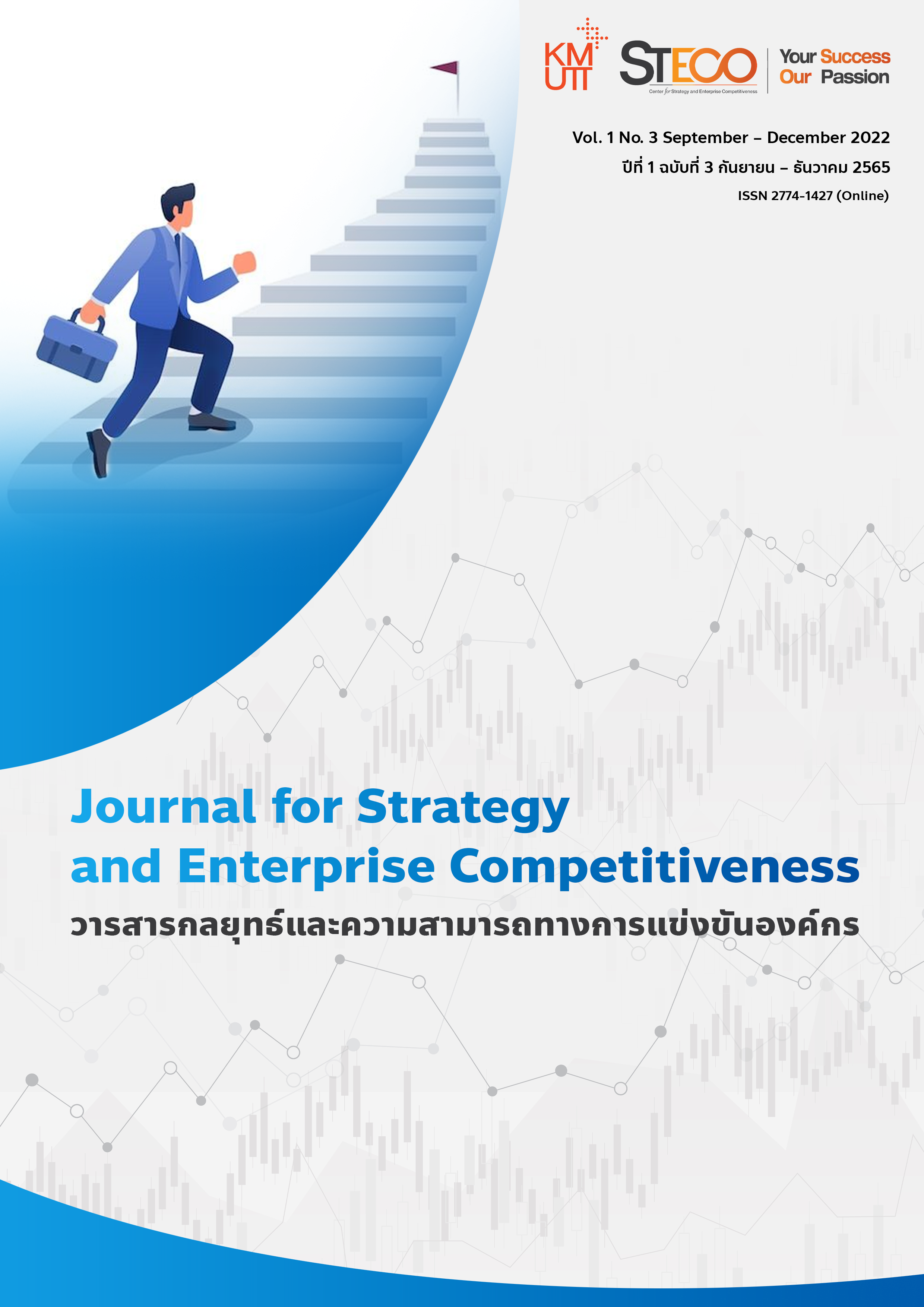Digital Life In Thailand
Keywords:
Digital Life, Digital Life Index, Digital EconomyAbstract
Digital life: the operation of daily activities through a device that serves as a location to manage various activities is referred to as "digital life." Whether it is communication, working, meeting, teaching, conducting financial transactions, shopping, searching for information, or being used for entertainment purposes, this study of digital life in Thailand was conducted through interviews with 6 experts related to digital technology in Thailand, both public and private sectors, who gave definitions and bodies of knowledge about digital life that was close to the people. Most Thai people are If we can use the daily activities that we do in this digital world to develop benefits, whether it is through the use of frequency or usage data of individual applications stored on the mobile phone, individuals will find that each person has different activities. Some people use apps for entertainment most often. Some people use social media the most. Some people use it for work or meetings the most. These can be used to develop software to meet the needs of future users. For now, or even if it's in the future, to check health insurance products for people in the digital age. Sleep data Purchasing health insurance can be advantageous. Discounts on purchasing health insurance packages or providing mobile phone usage information as part of the patient's assessment of the doctor's remote assessment or treatment via online channels. developments in the field of public health for ophthalmologists etc.
References
Chachula, M. W. (2007). Digital Mobility-an Architecture for the Digital Lifestyle (Doctoral dissertation, University of Cincinnati).
Chantorn, K., and Chasuwan, S. (2022). The Educational Institute Administration in a VUCA World Digital Intelligence (DQ). Global Goals, Local Actions: Looking Back and Moving Forward 2021 (pp. 1002-1010). Suan Sunandha Rajabhat University.
Charmonman, S., and Chorpothong, N. (2005). Digital lifestyle and the road ahead. International journal of the computer, the internet and management, 13(3), 2-2.
Chimphlee, W., Saengrungrueang, T., Mutchima, P., and Netwong, T. (2021). Development of Smart Canteen in The New Normal Era: Digital Technology for Social Innovation. Journal of science and Technology, Ubon Ratchathani University, 23(1), 91-102.
Farmer, L., and Safer, A. M. (2010). Developing California school library media program standards. School Library Research, 13.
Guillermo Kopp and Mark Sievewright. (2020). Digital Payments. Digital Life, 8.
Kraiwanit, T. (2021). Technology in Digital Era: Definition of Digital Era Digital Economy. Rangsit University, 2-4.
Laorach, C. (2021). Digital transformation and Impacts to Organization. Journal of Human Sciences, 22(1), 227-240.
Ma, W. W. (2019). Small-Town Youths, Digital Lifestyle and Sustainable Urbanization. Digital Debates, 78.
McMahon, M., and Pospisil, R. (2005). Laptops for a digital lifestyle: Millennial students and wireless mobile technologies. Proceedings of the Australasian Society for Computers in Learning in Tertiary Education, 2, 421-431.
Pansri, T., and Chomtohsuwan, T. (2019). Digital life inequality in Thailand. Institute of economics, Rangsit University.
Papp-Danka, A. (2019). Digital lifestyle–digital citizenship–digital pedagogy. Opus et Educatio, 6(4).
Prensky, M. (2004). The emerging online life of the digital native. Retrieved August, 7(2008), 253-263.
Ramos-Soler, I., López-Sánchez, C., and Quiles-Soler, C. (2021). Nomophobia in teenagers: digital lifestyle, social networking and smartphone abuse.
Sinthuwongsanont, M. (2019). Student quality of life for learning management in digital age. Academic Journal of Mahamakut Buddhist University Isan Campus (Saeng Isan), 16(1), 277-293.
Tyutyuryukov, V., and Guseva, N. (2021). From remote work to digital nomads: tax issues and tax opportunities of digital lifestyle. IFAC-PapersOnLine, 54(13), 188-193.
Waitayapanich. R., Soopunyo. W., and Keeratiburana, Y. (2020). Strategy Development Process to Promote Lifelong Learning on Digital Literacy. UMT POLY Journal, 17(1), 437-445.
Yanopas. N. (2018). Digital Tourism Innovation. Journal of Kanchanaburi Rajbhat University, 7(2), 148-157.
Downloads
Published
How to Cite
Issue
Section
License
Copyright (c) 2022 Journal for Strategy and Enterprise Competitiveness

This work is licensed under a Creative Commons Attribution-NonCommercial-NoDerivatives 4.0 International License.
The opinions appearing in the content of articles of Journal for strategy and enterprise competitiveness. It is the opinion and responsibility of the article author. It is not the opinion and responsibility of the Center for strategy and enterprise competitiveness, King Mongkut's University of Technology Thonburi
Articles, information, content and images, etc., in the Journal for strategy and enterprise competitiveness. It is the exclusive copyright of the Center for strategy and enterprise competitiveness, King Mongkut's University of Technology Thonburi. If an individual or entity wants to distribute all or part of the content or for any action must obtain written permission from the Center for Strategy and enterprise Competitiveness, King Mongkut's University of Technology Thonburi.



